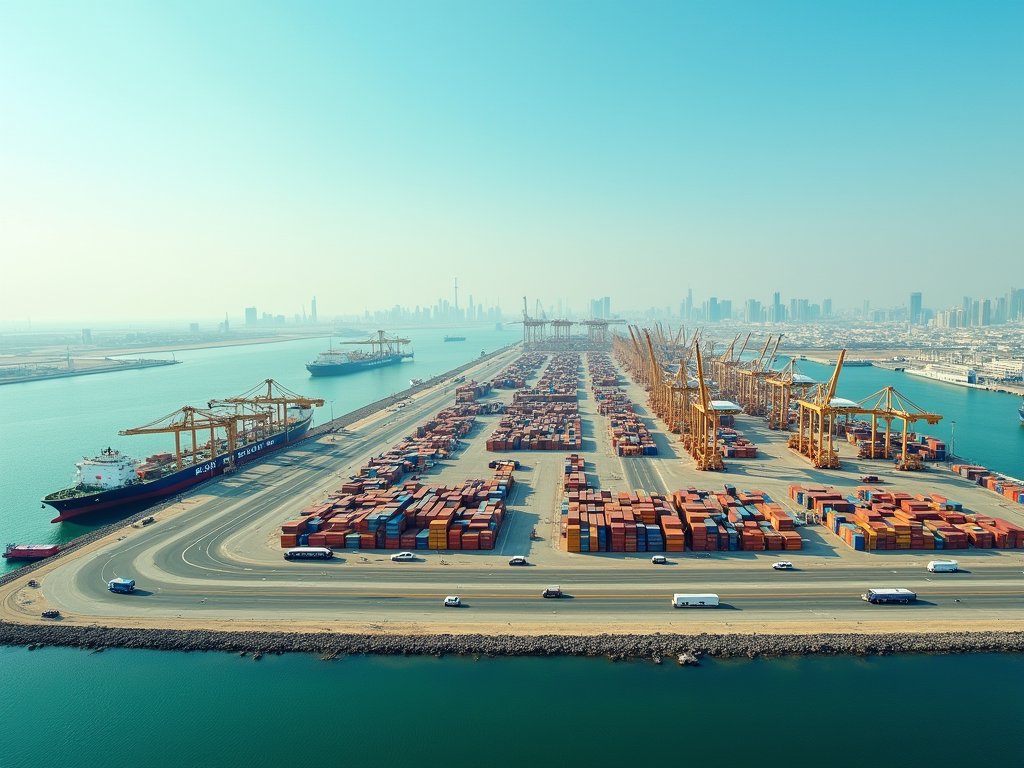Dubai has firmly positioned itself as a global business hub, attracting entrepreneurs and corporations with its business-friendly environment and strategic location. One of the key factors fueling this growth is the presence of numerous free zones, which offer exceptional advantages for international businesses seeking to expand in the UAE.
Among these, Ajman Free Zone stands out as a cost-effective and strategically located business hub. It provides 100% foreign ownership, tax exemptions, and simplified business setup processes, making it an attractive choice for startups and multinational enterprises alike. With easy access to key trade routes and modern infrastructure, Ajman Free Zone is ideal for businesses involved in trading, logistics, e-commerce, and manufacturing.
1. 100% Foreign Ownership

One of the most significant advantages of setting up a business in one of Dubai’s free zones is the allowance of 100% foreign ownership. Unlike onshore companies, where a local partner is often required, free zones enable expat entrepreneurs to fully own their businesses. This essential aspect allows international investors to retain complete control over their operations, assets, and profits without the complexities of local partnerships. Here’s a breakdown of the ownership model:
- Complete autonomy in business decisions.
- Retention of all generated profits.
- No requirement to share ownership with UAE nationals.
- Freedom to choose business structure without local sponsorship.
This level of ownership autonomy encourages international businesses to invest with confidence and streamline their operations in Dubai.
2. Tax Benefits

Dubai’s free zones are renowned for their favorable tax regimes, often featuring various incentives that reduce the financial burden on businesses. One of the most appealing aspects is the corporate tax exemption for up to 50 years, often renewable. In addition to corporate tax benefits, most free zones offer exemptions from personal income taxes. Companies can significantly bolster their profitability through these advantages. Key tax-related benefits include:
- No corporate tax on earned income.
- No personal income tax on salaries or dividends.
- No import or export duties on goods and services.
- Flexible regulations regarding taxation for specific industries.
These fiscal advantages not only facilitate higher returns on investment but also allow businesses to allocate resources toward growth and development rather than tax compliance.
3. Strategic Location and Infrastructure
Dubai’s strategic geographical location between Europe, Asia, and Africa makes it a gateway to some of the world’s largest markets. This prime positioning is reinforced by state-of-the-art infrastructure that supports international trade and supply chain efficiency. Several features contribute to this strategic advantage:
- Proximity to major shipping routes and air travel hubs.
- World-class logistics facilities and ports like Jebel Ali Port.
- Accessible land transportation networks facilitating regional trade.
- Modern telecommunications infrastructure that supports global connectivity.
These attributes empower international businesses to operate seamlessly across borders and tap into diverse markets, making Dubai an ideal operational base.
Establishing a business in Dubai’s free zones comes with a simplified setup process, often completed within weeks. The ease of registration and licensing appeals to international businesses looking to enter the market quickly. Some critical elements of this streamlined process include:
- Minimal documentation requirements.
- Fast-tracked approvals by respective free zone authorities.
- Access to dedicated business support services.
- Flexible office solutions, including virtual offices.
This efficiency encourages investment and enables international companies to focus on operation rather than bureaucratic delays, providing a significant competitive advantage.
5. Access to a Diverse Talent Pool
Dubai’s status as a cosmopolitan city attracts a diverse talent pool from around the world. Companies in the free zones have access to skilled professionals across various sectors, providing essential expertise to drive business success. This advantage translates into several benefits for international businesses:
- Ability to hire talent from multiple nationalities without restrictions.
- Diverse workforce that enhances innovation and creative problem-solving.
- Networking opportunities through a rich community of professionals.
- Access to educational institutions for continuous training and skill development.
By leveraging this talent pool, international businesses can build dynamic teams that contribute to their growth in the competitive market landscape.
Conclusion
In summary, Dubai’s free zones present a plethora of benefits for international businesses, making it an attractive destination for investment and growth. The combined advantages of 100% foreign ownership, favorable tax regimes, strategic location, streamlined business setups, and access to a diverse talent pool create a robust environment for companies to thrive. As the global business landscape continues to evolve, Dubai remains at the forefront, providing unparalleled opportunities for entrepreneurs and corporations looking to expand their operations.
Frequently Asked Questions
1. What is a free zone in Dubai?
A free zone in Dubai is a designated area where businesses can operate with special incentives such as 100% foreign ownership, tax exemptions, and streamlined licensing processes.
2. How long does it take to set up a business in a Dubai free zone?
The business setup process in a Dubai free zone can be completed relatively quickly, often within a few weeks, depending on the specific free zone and business type.
3. Are there any restrictions on the types of businesses that can operate in free zones?
While most free zones cater to specific industries, such as IT, media, or logistics, some allow a broad range of business activities. It’s essential to check the regulations of each free zone.
4. Can a free zone company operate in the UAE market?
Free zone companies primarily operate within the designated zone but can also engage in international trade. To conduct business in the local UAE market, a local distributor or agent may be required.
5. What are the costs associated with setting up a business in a Dubai free zone?
The costs can vary depending on the free zone and the nature of the business. Typical expenses include registration fees, licensing fees, and office space costs, which can range from a few thousand to several tens of thousands of dollars.


